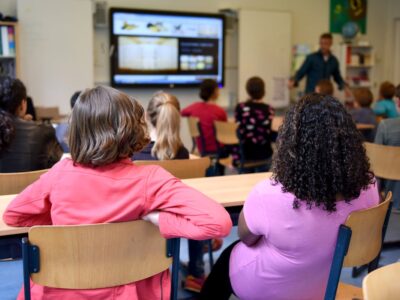Building confidence in children is essential for their academic, social, and emotional development. A confident child is more likely to participate in class, make friends, and approach challenges with a positive mindset. While some children naturally exude confidence, others may need gentle guidance and encouragement. Here are practical ways to help your child develop self-assurance at school.
Encourage a Growth Mindset
One of the most effective ways to foster confidence is to help your child develop a growth mindset. This involves teaching them that intelligence and abilities can improve with effort and practice. Instead of praising talent alone, celebrate hard work, perseverance, and progress. For example, instead of saying, “You’re so clever,” you might say, “I’m proud of how hard you worked on that project.” This approach helps children embrace challenges rather than fear failure, and it strengthens their resilience in the classroom.
Support Their Interests
Every child has unique strengths and interests. Encouraging your child to explore hobbies, sports, or creative activities can help them feel competent and valued. Whether it’s joining a school club, learning a musical instrument, or participating in a sport, pursuing interests outside the standard curriculum provides opportunities to achieve and gain recognition. These experiences often translate into increased confidence within the classroom, as children learn that their efforts are meaningful and appreciated.
Roleplay and Practice Social Skills
Many forward thinking educational settings believe that social interactions can be a major source of anxiety for children, particularly in new or challenging situations. Roleplaying common scenarios, such as introducing themselves to a new classmate or answering a question in class, can give children practical tools to navigate social and academic situations. Practising these skills at home provides a safe space for children to gain confidence before applying them in school settings.
Celebrate Achievements, Big and Small
Acknowledging accomplishments, no matter how minor they may seem, reinforces a child’s sense of self-worth. Celebrate milestones like completing homework on time, participating in class, or standing up for a friend. Regular positive reinforcement helps children internalise their successes and motivates them to keep striving. Remember, the goal is to focus on effort and improvement, rather than only results.
Maintain Open Communication
Encouraging open dialogue about school experiences is crucial. Ask your child about their day, listen to their concerns, and discuss any difficulties they may face. Feeling heard and supported by a parent or guardian builds emotional security, which in turn boosts confidence. Additionally, maintaining communication with teachers can provide insights into your child’s progress and help identify areas where additional support may be beneficial.
Encourage Independence
Giving your child age-appropriate responsibilities fosters autonomy and self-reliance. Simple tasks, such as organising their school bag, managing homework, or helping plan a small project, teach children to trust their abilities. Independence builds self-assurance because children see themselves as capable of managing their own challenges and making decisions.
Helping your child gain confidence at school is a gradual process, requiring patience, encouragement, and support. By fostering a growth mindset, celebrating achievements, and encouraging independence, you can help your child develop the resilience and self-belief they need to thrive academically and socially. Confident children are more willing to embrace challenges, build friendships, and approach school life with enthusiasm, laying the foundation for lifelong success.











